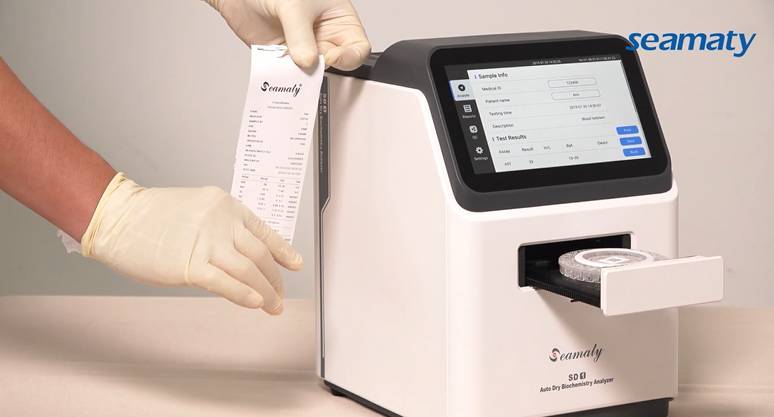Clinical biochemical tests allow the study of biochemicals in the human body in disease states and the changes in their indicators. Clinical biochemistry analyzers can be applied not only for routine testing of clinical biochemistry, but also for the determination of urine, cerebrospinal fluid components, various drugs and toxicants, electrolytes, specific proteins, hormones, etc. This provides a wide range of applications for experimental medicine.
Clinical biochemical analysis is the mechanization and automation of the major operational steps in biochemical testing with the help of mechanical and electronic devices of the instrument. The following five methods are commonly used in clinical biochemistry analyzers.
1. UV-Vis spectrophotometric method
This is a method of qualitative and quantitative and structural analysis of substances based on the absorption characteristics and intensity of the measured substance to light.
2. Endpoint analysis method
Endpoint analysis method is a type of method for quantitative analysis of the measured substance based on the absorbance spectral characteristics of the reaction products and their absorption intensity of light when the reaction reaches equilibrium.
3. Continuous monitoring method
It is a chemical method to determine the consumption of substrate or the rate of product generation.
4. Immunological measurement method
This analyzer method uses the specific binding of soluble antigens and antibodies in the liquid phase to produce a complex of a certain size, forming the refraction or absorption of light. Then to determine the refraction or absorption after the transmitted light or scattered light as a unit of calculation.
5. Dry chemical analysis method
Dry chemical analysis method is relative to the wet chemical analysis method. It refers to the direct addition of liquid test samples to commercially available dry reagent strips produced specifically for different projects. The dry chemical analysis method uses the moisture of the sample being tested as a solvent to cause a specific chemical reaction that leads to a chemical analysis.
Clinical Biochemistry Analyzers
The
clinical biochemistry analyzer is one of the common and very important diagnostic instruments used in clinical laboratories. It is used to determine various biochemical indicators by analyzing blood and other body fluids. For example, liver function, kidney function, cardiac disease, blood lipids, sugar, specific proteins, electrolytes, etc. The combination of biochemical testing and clinical medicine for comprehensive analysis can help clinicians diagnose diseases. This provides important information for developing treatment plans.



